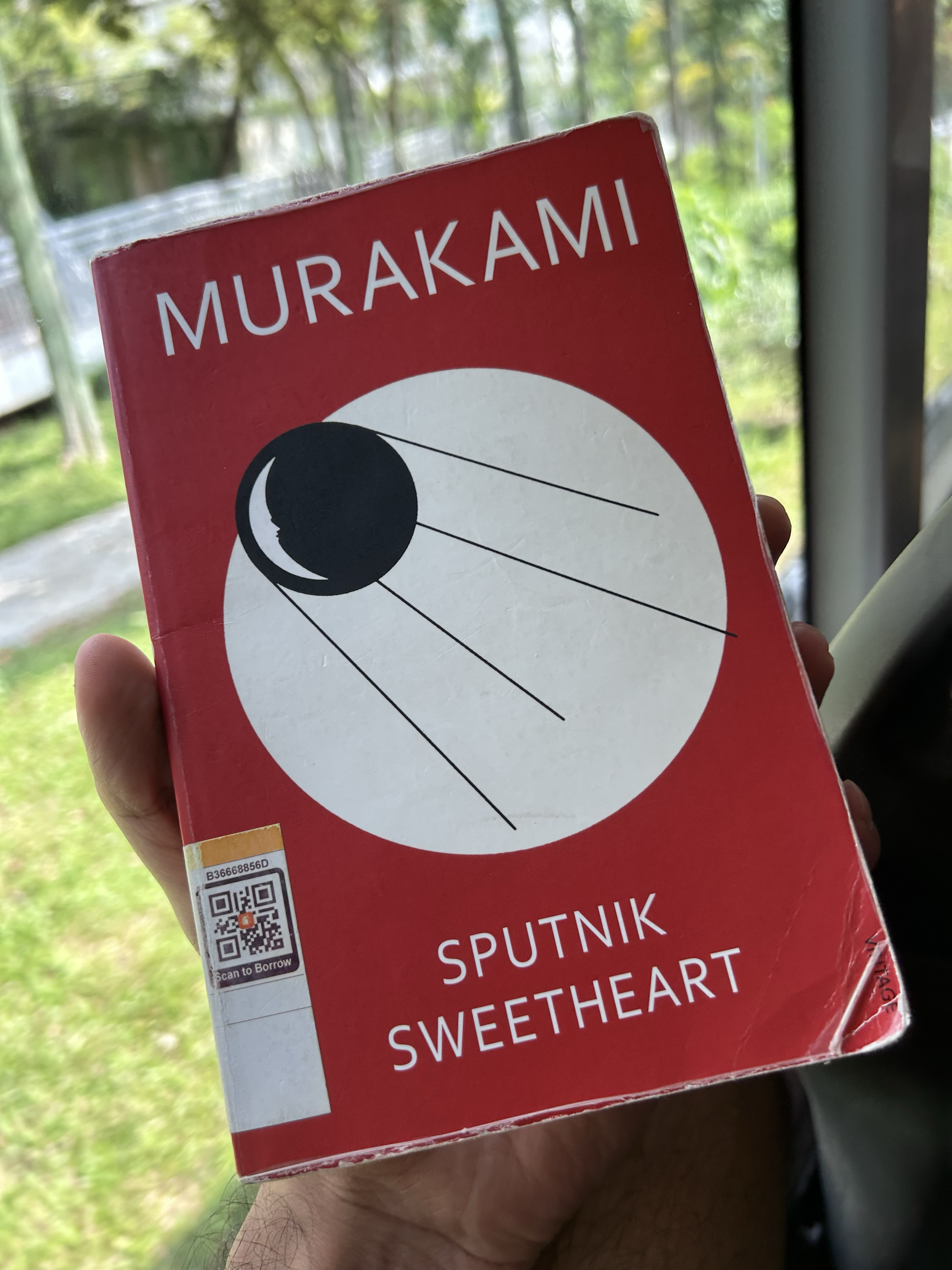Sputnik Sweetheart
30 Mar 2025, 877 Words booksPublished in 1999, written by Haruki Murakami.
I think this is going to be my last Murakami for some time. It was a beautiful book, and I thoroughly enjoyed the weirdness of the plot, but I can’t be bothered to splurge brain cells trying to figure out all the mysticism that he litters throughout his novels. It turns out, I am not into the magical aspects of a plot after all. I get too lost in his metaphors.
There are layers of hidden messages that he inserts in every single chapter to make his endings meaningful, but I really wonder who is able to remember all those plot points along the way. In his own words, his books should be read a few times to comprehend what it’s all really about. I don’t think I have the patience to read a book more than once, at least not within the same year. Movies, on the other hand, are a very different case. Once or twice isn’t even sufficient for the good ones.
Alright enough about the complaints. Now for the good stuff.
It usually takes me about two months to finish a book. Although I would love to read every night, my limited one to two-hour evenings are spent lazily on Youtube shorts and videos. I’m too tired after work to think about anything other than to mindlessly doomscroll. For this book specifically, I made a habit of dedicating my Sunday mornings to the library for some peace and quiet. Around 9 a.m, I have a nice breakfast nearby with a friend before making my way to this newly built library, spending an hour or two in front of this huge window on the third floor of the building. It has been sunny mostly, and it overlooks the entrance to a McDonald’s where parents bring their kids for their happy meals. I settle cozily into this nice sofa/chair before opening up the slim red book. My Sunday mornings have been therapeutic because of this routine.
I think the book came to me at a weird time of my life too. My brain has been taking in information at a really fast pace lately and feels constantly overloaded. I have not been able to think about other important things. So I guess that was the reason I wasn’t able to conform to the serenity the book demanded; my mind kept drifting to someplace else. I’ll have to read this book again when I am on a vacation somewhere out of here. I think a slow-paced laid-back sort of location would suit the theme of it. It was the right book, just the wrong time.
It was a short story, and I loved the love triangle bit of the plot. Unrequited love is one of the most profound and deepest forms of love, in my opinion, and he seemed to have taken a liking to exploring it. K loving Sumire, Sumire loving Miu, and Miu being unable to love or give herself sexually to anyone. Ah, classic love triangle. Deeply intriguing. Murakami excels at writing the most unorthodox romance stories, with constant themes of loss woven in them.
I am not sure if other readers feel this, but the male protagonists in Murakami novels seem to be the same person. I’ve read around five of his novels now, and they all feature protagonists with similar philosophies and values, just living different lives in alternate worlds. It almost seems deliberate that he didn’t put much effort into decorating these characters. I wonder if it’s because he sees himself in every single one of those male protagonists. The female characters, however, are different in every novel. Bringing life into the female characters while monochroming the male ones does bring about a special entranced-devotion style indeed - I do believe that women are infinitely more interesting than men. I love that he feels the same way too.
But yes, I think I am going to take a break from Murakami for now. I’ve been exclusively reading his novels the past three years or so. Maybe that was the mistake, I need to read other classics from the 20th century to break away from surrealism. But I guess what draws me back to his writings is the simplicity in his story-telling. Sputnik Sweetheart was written in Japanese, just like all his other novels. It was translated to English for the general audience. I wonder if the simplicity of the writing style was the consequence of translation, but I doubt it. I think his original work retains that attribute as well.
There is something raw about translated Japanese work that I keep coming back to. Japan really does have the most authentic artists. It almost feels like they operate entirely to give themselves to art. Produce as much beautiful work as possible before time runs out. I won’t be surprised if that was indeed their self-imposed purpose. I’ve seen this over and over again from Manga artists, Anime directors and figures such as Hayao Miyazaki. Beauty in creations. They seem to have understood life’s assignment truly well - to pour their life force into crafting pieces. Over and over again.

Joys of a physical red slim book.
books